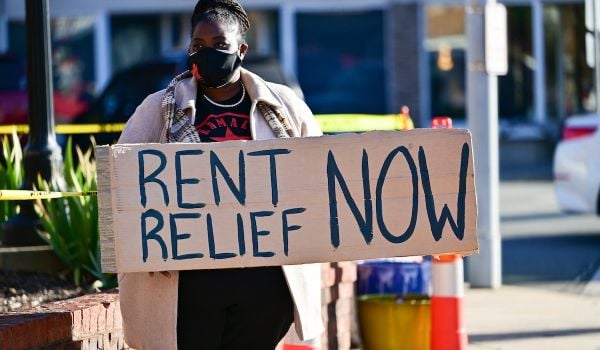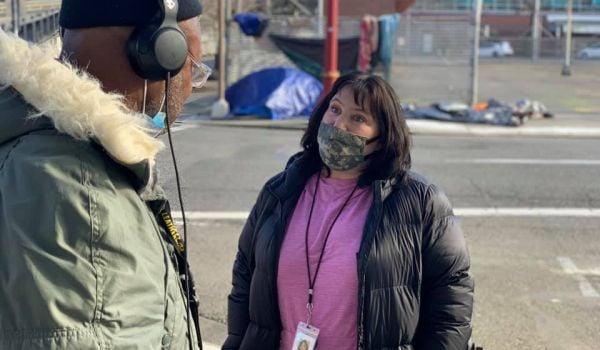Berkeley’s new transitional housing proposal follows in the steps of Seattle’s tent cities — a set of projects that have been controversial both in their local management, and overall philosophy.
From the East Bay Express:
City Council unanimously voted to fund 100 new beds at city-operated temporary and transitional-housing shelter, to the tune of approximately $2.5 million a year. …
Specifically, the funding would combine a proposed STAIR Center, which will provide 20 beds and focus on providing temporary shelter for homeless individuals, and a Bridge Living Community, which will feature 80 beds and connect individuals to permanent housing.
The shelters will be constructed to resembled a tent village, with bungalow-like tent-cabins, port-a-potties, mobile showers and security fencing. Each cabin will reportedly house eight people. According to the Express, officials hope to put a measure on the 2018 ballot to help pay for the transitional units.
The paper spoke with several members of the homeless community who panned the idea. Clark Sullivan, with First They Came For The Homeless (FTCFTH) told the Express that any efforts to address homelessness not focused on building permanent housing are a “big waste of money.” Another FTCFTH member said that housing eight people per tent was “like a concentration camp.”
Their concerns have been echoed on the national level, as Jen Kinney wrote for Next City last year.
Across the country, policymakers are moving away from a transitional housing model that seeks to provide homeless people with temporary residence and supportive services like behavioral healthcare and job training in order to become “ready” before being permanently housed. The pendulum is swinging toward Housing First, a model that aims to give people permanent housing first, and address the causes that led to their homelessness second. Given that transitional housing programs cost dramatically more without providing measurably better outcomes, the move toward Housing First has been widely hailed as a step closer to resolving a deep social problem that has vexed communities for generations.
That may be changing, however, with the new administration. On his national listening tour earlier this year, new HUD Secretary Ben Carson made some comments about the philosophy behind Housing First that led to some speculation that he might swing back toward the transitional model.
Whatever happens with HUD, Seattle is perhaps an interesting case study for Berkeley. The city’s tent cities have been praised for getting people off sidewalks and providing a network of services, but they’ve also been criticized as a kind of Band-Aid approach.
“I find it horrifying you have children living in encampments and that is somehow acceptable to this community,” Barbara Poppe, former head of the United States Interagency Council on Homelessness, told the Seattle Times last year. “It’s just unconscionable to me this is a choice that’s been made here. That said, I understand there’s great pressure to have a short-term solution. But I don’t happen to think these encampments are the best solution.”
In Berkeley, supporters see the shelters as a step toward more permanent housing, not an end in themselves.
“Housing first works,” Mayor Jesse Arreguin said recently, according to the Express. “If we can create enough housing or housing resources to get people off the streets, that solves the problem.”

Rachel Dovey is an award-winning freelance writer and former USC Annenberg fellow living at the northern tip of California’s Bay Area. She writes about infrastructure, water and climate change and has been published by Bust, Wired, Paste, SF Weekly, the East Bay Express and the North Bay Bohemian
Follow Rachel .(JavaScript must be enabled to view this email address)















